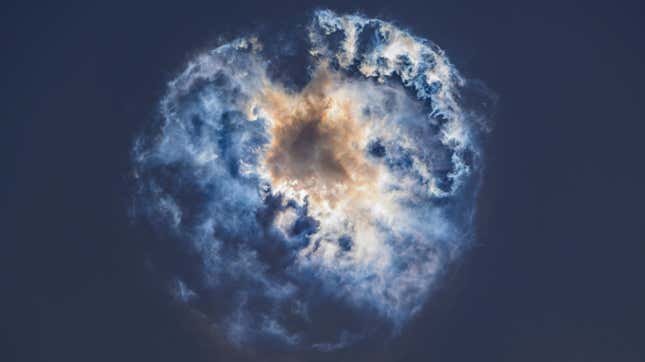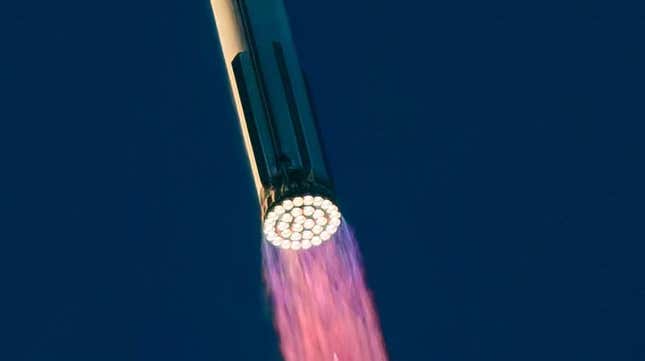SpaceX needs to implement 17 corrective actions before it can proceed with the planned third test of its groundbreaking mega-rocket

SpaceX 需要实施 17 项纠正措施,然后才能继续计划中的开创性巨型火箭的第三次测试
The Federal Aviation Administration (FAA) has closed its investigation into the second Starship test flight, which SpaceX performed on November 18, 2023. With the inquiry concluded, SpaceX is now on track to advance its program, pending the necessary fixes.
美国联邦航空管理局 (FAA) 已结束对 SpaceX 于 2023 年 11 月 18 日进行的第二次 Starship 试飞的调查。调查结束后,SpaceX 目前正按计划推进其计划,等待必要的修复。
Orbital Test Flight 2 (OFT-2) was a considerable improvement over the first test, done on April 20, 2023, which resulted in considerable damage to the launch pad and the surrounding area as well as the loss of the Starship rocket some four minutes into the flight. Nevertheless, OFT-2, which witnessed the in-flight destruction of both the Super Heavy booster and upper stage, prompted an FAA investigation.
轨道测试飞行 2 (OFT-2) 比 2023 年 4 月 20 日进行的第一次测试有了相当大的进步,第一次测试对发射台和周围区域造成了相当大的损坏,并且星舰火箭损失了大约四分钟进入飞行。尽管如此,OFT-2 目睹了超重型助推器和上级在飞行中被毁,引发了美国联邦航空局 (FAA) 的调查。
As per the regulator’s guidelines, SpaceX led the mishap investigation, with the FAA keeping a close watch on the process to ensure compliance. The aerospace company identified the root causes of the failed test, resulting in 17 corrective actions, some of which have already been implemented. Starship, still in development, is a fully reusable spacecraft and rocket system designed for missions to Earth orbit, the Moon, Mars, and other locations in the solar system, and it’s set to seriously transform the aerospace industry.
根据监管机构的指导方针,SpaceX 主导了此次事故调查,美国联邦航空管理局 (FAA) 密切关注这一过程以确保合规性。该航空航天公司确定了测试失败的根本原因,并采取了 17 项纠正措施,其中一些已经实施。仍在开发中的星际飞船是一种完全可重复使用的航天器和火箭系统,专为执行地球轨道、月球、火星和太阳系其他地点的任务而设计,它将彻底改变航空航天业。
This development means SpaceX is now a major step closer to the third test flight. But as the FAA made clear in its emailed statement, the “closure of the mishap investigation does not signal an immediate authorization of the next Starship launch.” For that to happen, SpaceX “must implement all corrective actions and receive a license modification from the FAA that addresses all safety, environmental and other applicable regulatory requirements.” That said, a test flight in March is not out of the question.
这一进展意味着 SpaceX 现在距离第三次试飞又近了一大步。但正如美国联邦航空局在其电子邮件声明中明确指出的那样,“事故调查的结束并不意味着立即授权下一次星舰发射。”为此,SpaceX“必须实施所有纠正措施,并获得美国联邦航空管理局 (FAA) 的许可证修改,以满足所有安全、环境和其他适用的监管要求。”也就是说,三月份的试飞并非不可能。
A rare update from SpaceX provided more information about the investigation and what went wrong during OFT-2.
SpaceX 罕见地发布了最新消息,提供了有关调查以及 OFT-2 期间出现问题的更多信息。
Following stage separation, and as the booster began its descent stage, “several engines began shutting down before one engine failed energetically,” resulting in a chain of events that ultimately resulted in the destruction of the Super Heavy, the company explained. SpaceX identified filter blockage as the culprit, in which oxygen-rich liquid from the engines clogged the filters. This led to the shutdown of several engines and an explosion about three and a half minutes into the flight, while Starship was flying 56 miles (90 kilometers) over the Gulf of Mexico. SpaceX claims to have already implemented a fix.
该公司解释说,在级分离之后,当助推器开始下降级时,“在一台发动机发生故障之前,几台发动机开始关闭”,导致一系列事件最终导致超重型火箭的毁坏。 SpaceX 确定过滤器堵塞是罪魁祸首,来自发动机的富氧液体堵塞了过滤器。这导致数个发动机关闭,并在飞行约三分半钟后发生爆炸,当时“星舰”正在墨西哥湾上空飞行 56 英里(90 公里)。 SpaceX 声称已经实施了修复。

2023 年 11 月 18 日,星际飞船进行第二次试飞,所有 33 个猛禽发动机均已启动。
As for the upper stage, it managed to free itself from the booster and fly for nearly seven minutes. Then, as part of the test, it vented extra liquid oxygen that was loaded for data collection purposes (this normally wouldn’t be done during a launch). However, a leak occurred during this venting, causing a fire and loss of communication with the flight computers. This led to the engines shutting down early and the self-destruct system ending the mission. The test ended as the upper stage reached an altitude of 93 miles (150 km), marking the first time a Starship vehicle reached outer space. To prevent a recurrence, SpaceX has “implemented hardware changes on upcoming Starship vehicles to improve leak reduction, fire protection, and refined operations associated with the propellant vent to increase reliability.” What’s more, a shift from the hydraulic steering of Raptor engines to an exclusively electric-based system should also remove “potential sources of flammability,” SpaceX added.
至于上层,它成功地脱离助推器并飞行了近七分钟。然后,作为测试的一部分,它排出了出于数据收集目的而加载的额外液氧(这通常不会在发射期间完成)。然而,在通风过程中发生泄漏,导致火灾并导致与飞行计算机的通信中断。这导致发动机提前关闭,自毁系统结束了任务。当上级达到 93 英里(150 公里)的高度时,测试结束,这标志着星舰飞行器首次到达外太空。为了防止类似情况再次发生,SpaceX“对即将推出的星际飞船进行了硬件改造,以减少泄漏、防火,并改进与推进剂排气口相关的操作,以提高可靠性。” SpaceX 补充说,更重要的是,从猛禽发动机的液压转向转向完全电动的系统也应该消除“潜在的易燃源”。
Of the 17 corrective actions identified, seven pertained to the Super Heavy booster, including redesigns of vehicle hardware and improvements in control system modeling, with the remaining ten corrective actions related to the upper stage.
在确定的 17 项纠正措施中,7 项与超重型助推器有关,包括重新设计车辆硬件和改进控制系统模型,其余 10 项纠正措施与上级相关。
All that said, it would be unfair to label OFT-2 as a total failure, as several key milestones were achieved. These include the successful stage separation and the execution of the first hot staging maneuver—an unprecedented feat for a rocket of this size. Additionally, all 33 Raptor engines successfully ignited during liftoff, in an important demonstration of reliability. Finally, the water deluge system worked as intended, playing a crucial role in protecting the launch mount from the intense forces and heat of the rocket during its ascent.
尽管如此,将 OFT-2 贴上彻底失败的标签是不公平的,因为已经实现了几个关键的里程碑。其中包括成功的级分离和首次热分级机动的执行——对于这种规模的火箭来说这是前所未有的壮举。此外,所有 33 台猛禽发动机在升空过程中均成功点火,这是可靠性的重要证明。最后,水淋系统按预期工作,在保护发射架免受火箭上升过程中的强大力量和热量影响方面发挥了至关重要的作用。
For the third test, SpaceX plans to introduce several new features, including the aforementioned electric steering system for the upper-stage Raptors. The company also aims to expedite propellant loading before launch and test in-flight fuel transfer within the rocket, as a part of a NASA contract.
对于第三次测试,SpaceX 计划推出多项新功能,包括前面提到的用于上级猛禽的电动转向系统。作为美国宇航局合同的一部分,该公司还旨在加快发射前推进剂的装载,并测试火箭内的飞行中燃料传输。


 Optimisus
Optimisus Optimisus
Optimisus Optimisus
Optimisus Thecryptoupdates
Thecryptoupdates DogeHome
DogeHome The Crypto Times
The Crypto Times Coincu
Coincu Optimisus
Optimisus Coin_Gabbar
Coin_Gabbar






















